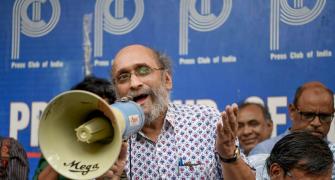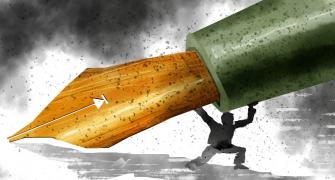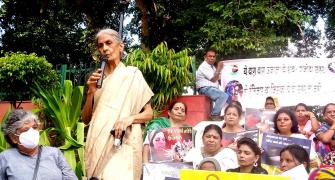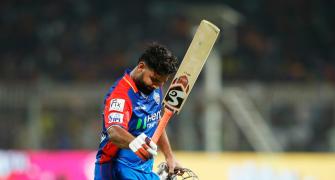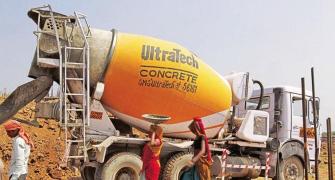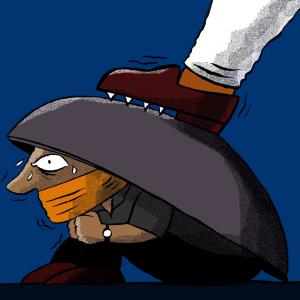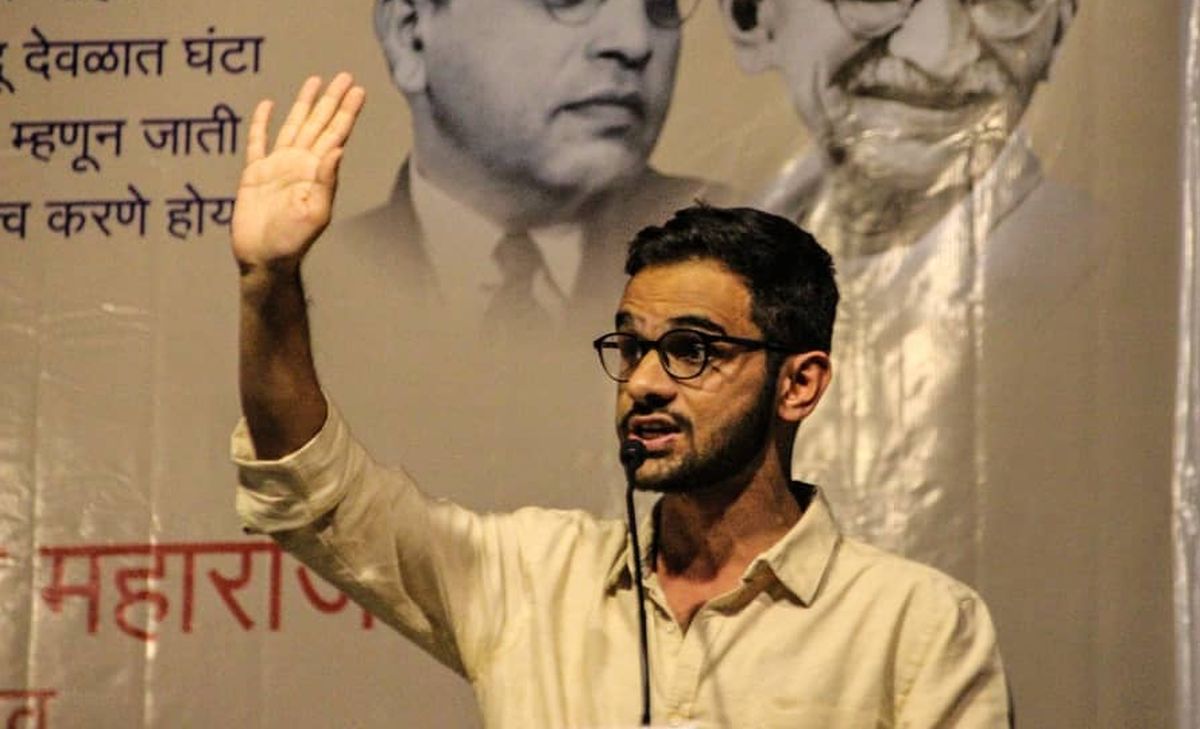'I wonder how people who come to power through democratic means turn out this way.'
'But people of India are strong, and those who think they can hoodwink people, are mistaken.'
'You can fool some people for some time, but not all people, all the time.'

The subject of a circular dated the 18th of October by the ministry of finance was, 'Nomination of officers of the rank of joint secretaries/director/deputy secretary pertaining to various levels for deployment as district rath prabharis (special officers) at each 765 districts covering 2.69 lakh Gram Panchayats in the country'.
It went on to say that the duty was to 'showcase/celebrate the achievements of the last nine years of the government through a Viksit Bharat Sankalp Yatra from November 20, 2023 and January 25, 2024'.
Congress spokesperson Pawan Khera first posted the circular on social media and asked, How can civil servants be ordered to do political propaganda for a government going into elections?
Retired senior bureaucrats like E A S Sarma and M G Devasahayam wrote to the Election Commission expressing their concern on using IAS officers and other civil servants as 'rath prabharis'.
Dr E A S Sarma, an 1965 batch IAS officer, served in the Union finance and power ministries before he opted for voluntary retirement from the IAS in 2000 after differences with the Atal Bihari Vajpayee government.
"The Cabinet secretary should have objected to the circular. The home secretary should have objected. Any order issued by the prime minister or a minister should be according to the law," Dr Sarma tells Rediff.com's Shobha Warrier.
Many people are expressing the view that democracy is at risk now with the way the media is being targeted, the way UAPA is used against dissenting voices, calling critical voices as 'Urban Naxals', etc. Do you feel so?
It is clear that democracy is at risk.
The institutional pillars of democracy are the Supreme Court of India, the Election Commission of India, the CAG, the National Commissions for Scheduled Castes and Tribes, the Finance Commission, and I find that they are all under concerted attack, particularly in the case of the Election Commission.
The Election Commission under Article 324 of the Constitution is the custodian of free and fair elections. When the Election Commission is weakened, it weakens democracy too.
When you violate the Model Code of Conduct, you are cutting at the root of democracy.
When the Supreme Court commented adversely on the selection of the election commissioners, in no time, the government came up with a bill and introduced in Parliament whereby the committee would leave out the Chief Justice of India and it would have the prime minister, the leader of the Opposition in the Lok Sabha and a Cabinet minister nominated by the PM for selecting members of the Election Commission of India. This tilts the balance completely in favour of the political executive.
They have also made the selection process non-transparent. They are trying several means to weaken the pillars of democracy.
Then the Supreme Court. When the collegium recommends some names to the government for appointment of judges, they are taking their own time to clear them. Why should they take time? What is the reason for that?
In my view, they should straightaway clear the names and send it within a day. One day delay shows some motive.
These are very, very, serious matters. I am of the opinion that everything must be rule based. You cannot have subjectivity in this.
So, when we say democracy is at risk, it is because its pillars are getting weakened. And one of the most important pillars is the Election Commission. They don't want election commission members to be selected independently. They don't want them to function independently.
I had registered several complaints on violation of the Model Code of Conduct in THE Gujarat assembly elections and in Karnataka, but no action was taken by the Election Commission of India. They don't even register the complaint and place it on their Web site.
Somehow, the Election Commission does not inspire public confidence.
You wrote to the Election Commission on using public servants to showcase the achievements of the government as it was illegal.
What will happen if the Election Commmission doesn't respond to you and also doesn't go against the government orders?
In fact, even before I complained, a responsible Election Commission would have taken cognisance of it and acted on its own.
Do you feel India misses a person like T N Seshan at a time like this?
Yes, we miss a person like Shri T N Seshan. I knew him personally. I know he would have acted on his own!
Today the situation is different. Why should you wait for a person to complain about violation of the Model Code of conduct?
The second thing is, soon after I registered a complaint, they should have written to the government asking for an explanation. By now, they should have taken action.

Do you expect the Election Commission to take any action?
I am a great optimist. I always hope somebody will rise up and preserve the institutional strength and integrity.
See, Shri Seshan was appointed by the government at that time through a non-transparent procedure, but he stood up.
I hope the members of the Election Commission will rise up and preserve the integrity of the Election Commission.
When Sardar Patel was the home minister, he addressed the first batch of civil servant trainees and told them not to get involved in political and communal matters, and that they should be secular and apolitical.
I feel the Cabinet secretary should have objected to the circular. The home secretary should have objected.
Can civil servants say, no, we will not be rath prabharis?
They will have to say, no, as it is not in accordance with the civil service conduct rules.
When Shri N T Rama Rao was the chief minister of Andhra Pradesh, I was the secretary of power for the government of Andhra Pradesh. They asked me to sign a number of MoUs with several private power plant promoters. I recorded a dissenting note, 'This is not correct, and I do not propose to sign it'. I went on leave after that.
To me, any order issued by the prime minister or a minister should be according to law.
When I interviewed MG Devasahayam, he said the situation today is worse than the Emergency. Do you feel so?
I do not want to compare two different situations. But any breakdown of law is bad.
Today, I feel very worried because of the repeated attempts to downgrade democratic values, to make a mockery of Constitutional values.
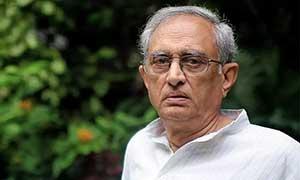 IMAGE: Dr E A S Sarma. Photograph: Kind courtesy Dr E A S Sarma
IMAGE: Dr E A S Sarma. Photograph: Kind courtesy Dr E A S SarmaHave you witnessed this kind of a situation before?
It had happened in bits and pieces in some states and at the Centre, but not on such a large scale.
I wonder how people who come to power through democratic means turn out this way.
But people of India are strong, and those who think they can hoodwink people, are mistaken.
You can fool some people for some time, but not all people, all the time.
Feature Presentation: Ashish Narsale/Rediff.com

